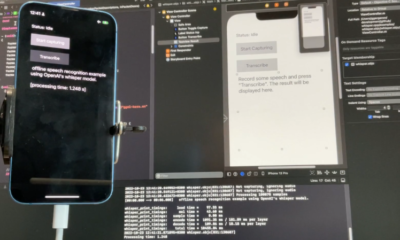Artificial Intelligence
Artificial Intelligence predicts time, probability of cardiac arrest occurring

A new artificial-intelligence-based approach can predict, significantly more accurately than a doctor, if and when a patient could die of cardiac arrest.
The technology, built on raw images of patient’s diseased hearts and patient backgrounds, stands to revolutionise clinical decision making and increase survival from sudden and lethal cardiac arrhythmias, one of medicine’s deadliest and most puzzling conditions.
The work, led by Johns Hopkins University researchers, is detailed in Nature Cardiovascular Research. “Sudden cardiac death caused by arrhythmia accounts for as many as 20 percent of all deaths worldwide and we know little about why it’s happening or how to tell who’s at risk,” said senior author Natalia Trayanova, the Murray B. Sachs professor of Biomedical Engineering and Medicine.
“There are patients who may be at low risk of sudden cardiac death getting defibrillators that they might not need and then there are high-risk patients that aren’t getting the treatment they need and could die in the prime of their life. What our algorithm can do is determine who is at risk for cardiac death and when it will occur, allowing doctors to decide exactly what needs to be done.”
The team is the first to use neural networks to build a personalised survival assessment for each patient with heart disease. These risk measures provide with high accuracy the chance for a sudden cardiac death over 10 years, and when it’s most likely to happen.
The team used contrast-enhanced cardiac images that visualize scar distribution from hundreds of real patients at Johns Hopkins Hospital with cardiac scarring to train an algorithm to detect patterns and relationships not visible to the naked eye.
Current clinical cardiac image analysis extracts only simple scar features like volume and mass, severely underutilizing what’s demonstrated in this work to be critical data.







